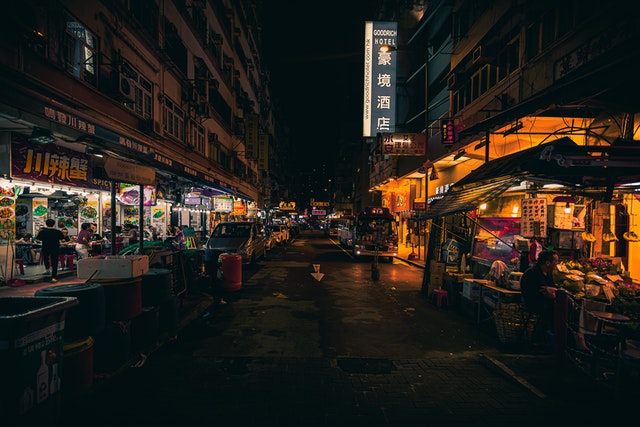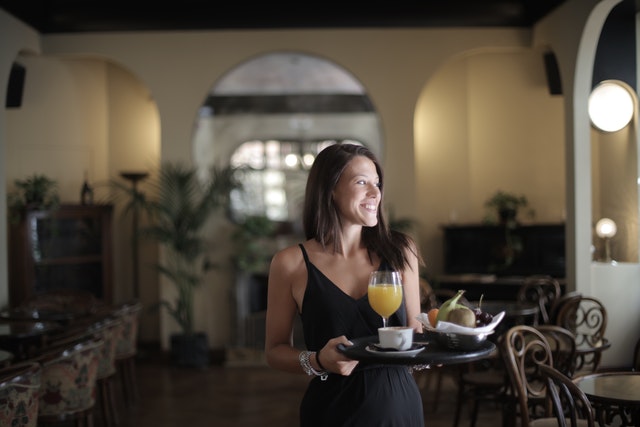There are two types of people who like to stay in hotels and those who don’t. I rely more on the latter and when traveling for leisure I often choose Airbnb over hotel stays. why? It’s often cheaper, less sterile, and can provide a unique touch that makes a place feel more like home. However, if a hotel can market itself properly, offer a reasonable price and treat me like a queen, this decision can be easily changed.
The challenge of entering the hotel marketing industry is overwhelming competition. Especially with the growing popularity of websites like Airbnb and Home Away, it has become more difficult to stand out from the competition to collect more bookings.
Hotel marketers are all too familiar with these issues, but they often need to achieve (and hopefully exceed) metrics related to bookings.
So what can struggling hotel marketers do? How do you get people to find your hotel in the first place, and not get so excited that they can’t wait to book their stay? Do not worry.
Here are 10 solid tips for hotel marketing success!
Tip #1: Search Online Easily!
Let’s face it, technology has taken over. The days of travel agents are over. Today’s travelers can do comparative research without leaving bed. So, if it’s not easy to find hotels online, it’s only natural that the number of reservations is small and somewhere in between. I need to be relevant everywhere online for potential bookings so people can find me at the window when they need to book a place to stay.

Know your SEO, as most travelers (75%!) start by using a search engine to find a place to stay. Use popular hotel keywords in your site text and make sure your site loads very fast.
Travel companies have high CTR and low cost, especially on mobile.
But don’t rely solely on organic optimization! SERPs (Search Engine Results Pages) for hotel-related searches generate a lot of revenue, so people see your ads first. In the example screenshot below, the entire screen is occupied by ads. You should bid aggressively on Google’s search and display networks (don’t forget hotel ads!), social platforms like Bing, Facebook and Instagram, and websites like Trip Advisor and Kayak.
Don’t limit yourself to just one social platform, search engine or travel website. You may not need to have a strong presence on every website imaginable, but you should dig into website analytics to understand where people usually book and create an attractive and competitive presence on that platform.
Tip #2: Remarketing

Did you know that the online hotel booking abandonment rate is 75%?! Yes. A whopping 3 out of 4 start the booking process, become distracted and give up on the experience. Who knows if the pizza man was hampering your purchase or if you doubted you could find a better deal elsewhere. Whatever the reason, that doesn’t mean you should give up as a hotel marketer.
Remarketing is an important component of hotel marketing as travelers are distracted by everyday distractions (such as pop-up phone notifications and crying babies) as well as hundreds of other options to choose from.
With remarketing, you can lower your abandonment rate and close more bookings by showing attractive display ads to people who have recently visited your site. Offer a little extra incentive to book on behalf of your competitors and make the booking process as easy as possible.
Tip # 3: Make Sure You’re Targeting the Right Audience
What type of hotel are you marketing and who are your typical guests? Marketers at the Super 8 Motel off Route 9 need a different strategy compared to the Ritz Carlton on the sandy beaches of the Caribbean coast. These people have different reservations, travel, and budgets. That’s why tools like income targeting are useful. It may seem obvious, but there are other ways to segment your audience when it comes to hotel marketing.

Many hotels have a wide range of customers with different income levels because they can offer more luxurious rooms (such as the Presidential Suite) and other rooms that are sold at discount prices. These two targets need to be segmented and targeted separately. Even for the same hotel chain in different locations, there are differences. All of these must be taken into account when creating a marketing campaign.
But if you work for a trendy hotel in Koreatown, LA, for example, you might want to target a young, single population, for example.
Tip #4: Allocate More Marketing Budget During Peak Booking Season
If you run a ski resort in the Alps or a beach rental shop in the Cape, the peak booking season will be very different. Hotel marketers are likely well aware of peak booking times, but they can be a step behind when it comes to advertising budgeting. It makes sense to spend more on your annual budget during the busiest season.
Know when work is busy, steady, and slow, and then adjust your budget accordingly. Make sure the windows are not too narrow. This often requires planning in advance, but Google and other advertising platforms make it fairly easy to adjust your budget on an ongoing basis. Make sure you are actually doing this!
Another benefit is ad scheduling. When do people usually book travel? You can also run a hotel that travels frequently. These individuals tend to book more during business hours than those who travel for leisure who are more likely to book on weekdays or weekends. View your data, verify it, and schedule your ads to only show ads on higher budgets during these peak hours.
Tip #5: Incentivize People to Care
Why stay with you at a hotel down the road or at a more convenient or cheaper hotel? Your hotel must have a reason to motivate potential customers to choose you from the competition.
Brainstorm some unique incentives and offers you can offer your potential customers when you don’t have an obvious reason like the lowest price or the best reviews. For example, you can offer a 15% discount to all first-time guests. Incentives are also great for creating a sense of urgency to encourage people to book with you before you miss out on special limited-time offers.
See examples below for luxury hotels in San Juan, Puerto Rico. They offer a full range of websites for special offers. Below you’ll find a 30% discount on stays of 2 nights or more, 15% discount on meals, and discounts on 24 hours access to our fabulous fitness center. It’s not bad!
Tip #6: Build Local Partnerships
Chances are your hotel is not in the middle of the desert. There are likely to be local businesses and attractions around. Be sure to get to know your neighborhood – famous restaurants, shops and yoga studios. Making friends with local business owners, especially if you’re marketing a boutique hotel rather than a chain, is a great way to build partnerships and co-promote each other.
For example, you can partner with a popular brewery and run a contest where the winner gets a free brewery tour and beer tasting, plus discounts on hotel stays. Building these relationships will lead to easy, effective and affordable marketing that will definitely increase your booking rates.
Tip #7: Market Your Location, Not Your Hotel

Many future vacationers will likely still be indecisive, regardless of whether the city or town in which their hotel is located is a place they want to spend their precious PTO. That’s why you shouldn’t focus solely on the amenities offered by hotels. Yes, it’s wise to promote top-notch room service and infinity pools, but promoting your location is equally important. What makes your city or town a great place to visit? Future visitors will want to know this.
Check out some great examples of The W Chicago. Rather than just promoting modern hotel amenities, they promote local events to a specific audience of festival goers. This strategy has the potential to help attract festival fans who haven’t considered Chicago as a vacation option. Aside from opting for the best short term rental management software for your hotel, take advantage of local attractions and events in your marketing and promote where your city is famous!
Tip #8: Make Your Website Simple and Breathtakingly Awesome
This may seem like common sense, but there are too many hotel websites that lack a website design. This is an immediate shutdown for hotel bookers. If your website is clean and unattractive, why would a physical location be a good thing? Websites are often the first impression a person makes about a hotel, so you need to make them both breathtaking and useful. This means that it is simple and straightforward for users (on any type of device) to find the information they need and complete the reservation.
When renovating your website, focus on keeping the design and navigation clean, crisp and simple. Make sure your hotel photos are professional, high-resolution and displayed in the correct format and proportions that work on both desktop and mobile. Keep the language clear and simple and make sure the booking process is easy to avoid mid-book abandonment. Videos also tend to work well because they present a space in a more thorough and engaging way.
Badrutt’s Palace is a great example of a hotel website that includes all of these clean and attractive design elements. Their background homepage videos do an excellent job of showing off the beauty of the destination. In this visual industry, it’s important to take advantage of the beauty surrounding a location.
Tip #9: Go Beyond Customer Service Before, During, and After Your Stay
Marketing and customer service are closely related, especially in the hospitality industry. If you go beyond that for your customers, they are much more likely to pay for you and do the same for you in terms of great online reviews, referrals, and repeat visits.

So what does good customer service mean? The first step is to hire and train your employees in a customer first spirit. Working with people can be very difficult, but it is always important to put the customer first. For example, let’s say a hotel visitor is upset with the view from his room and there is no other open room available for use.
Provide a bottle of foam and a handwritten note apologizing for the inconvenience to figure out if you can move them later for the rest of your stay and to compensate for the problem. These types of gestures can show you how to make a lasting impact and add value to your customers.
When customers are treated exceptionally well, they are much more likely to share their experiences with others, which leads to more business. If you’re curious about additional ways to go beyond that for your visitors, check out these customer service stories.
Tip #10: Build a Customer Loyalty Program
Sometimes past customers can make the best prospects for the market. If you’ve had positive experiences in the past, why wouldn’t you want to come back?
A customer loyalty program is a great way to keep your customers coming back. why? This program is designed to offer great discounts and special offers to returning visitors. Perhaps your program can work in a way that allows guests to earn points and reach a certain level (gold, platinum, etc) each year.
No Reservation
If bookings haven’t increased after implementing all these tried and true tactics, then your hotel should be located nowhere! But seriously, this guide is going to help you book your frenzied success.

